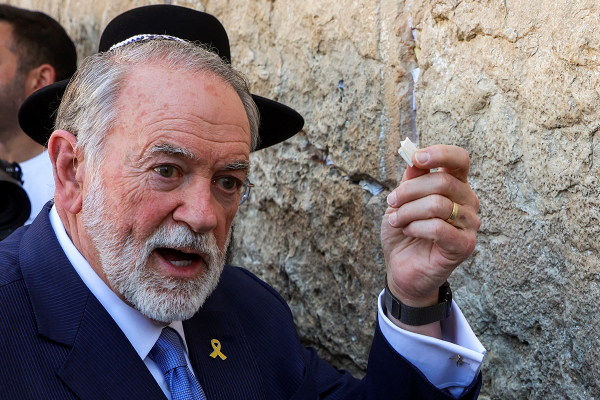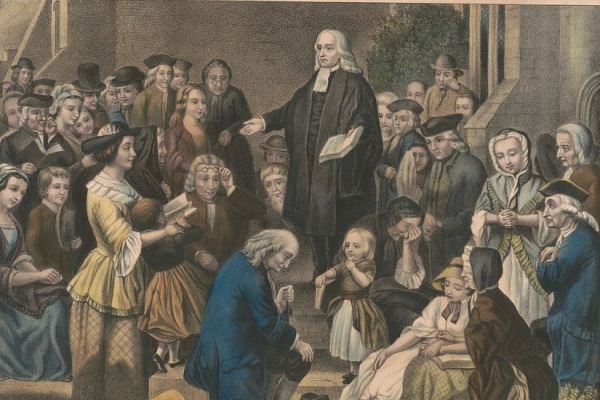President Obama State of the Union Address 2016 Full Transcript Text
That's why Social Security and Medicare are more important than ever; we shouldn't weaken them, we should strengthen them. And for Americans short of retirement, basic benefits should be just as mobile as everything else is today. That's what the Affordable Care Act is all about. It's about filling the gaps in employer-based care so that when we lose a job, or go back to school, or start that new business, we'll still have coverage. Nearly eighteen million have gained coverage so far. Health care inflation has slowed. And our businesses have created jobs every single month since it became law.
Now, I'm guessing we won't agree on health care anytime soon. But there should be other ways both parties can improve economic security. Say a hardworking American loses his job – we shouldn't just make sure he can get unemployment insurance; we should make sure that program encourages him to retrain for a business that's ready to hire him. If that new job doesn't pay as much, there should be a system of wage insurance in place so that he can still pay his bills. And even if he's going from job to job, he should still be able to save for retirement and take his savings with him. That's the way we make the new economy work better for everyone.
I also know Speaker Ryan has talked about his interest in tackling poverty. America is about giving everybody willing to work a hand up, and I'd welcome a serious discussion about strategies we can all support, like expanding tax cuts for low-income workers without kids.
But there are other areas where it's been more difficult to find agreement over the last seven years – namely what role the government should play in making sure the system's not rigged in favor of the wealthiest and biggest corporations. And here, the American people have a choice to make.
I believe a thriving private sector is the lifeblood of our economy. I think there are outdated regulations that need to be changed, and there's red tape that needs to be cut. But after years of record corporate profits, working families won't get more opportunity or bigger paychecks by letting big banks or big oil or hedge funds make their own rules at the expense of everyone else; or by allowing attacks on collective bargaining to go unanswered. Food Stamp recipients didn't cause the financial crisis; recklessness on Wall Street did. Immigrants aren't the reason wages haven't gone up enough; those decisions are made in the boardrooms that too often put quarterly earnings over long-term returns. It's sure not the average family watching tonight that avoids paying taxes through offshore accounts. In this new economy, workers and start-ups and small businesses need more of a voice, not less. The rules should work for them. And this year I plan to lift up the many businesses who've figured out that doing right by their workers ends up being good for their shareholders, their customers, and their communities, so that we can spread those best practices across America.
In fact, many of our best corporate citizens are also our most creative. This brings me to the second big question we have to answer as a country: how do we reignite that spirit of innovation to meet our biggest challenges?
Sixty years ago, when the Russians beat us into space, we didn't deny Sputnik was up there. We didn't argue about the science, or shrink our research and development budget. We built a space program almost overnight, and twelve years later, we were walking on the moon.
That spirit of discovery is in our DNA. We're Thomas Edison and the Wright Brothers and George Washington Carver. We're Grace Hopper and Katherine Johnson and Sally Ride. We're every immigrant and entrepreneur from Boston to Austin to Silicon Valley racing to shape a better world. And over the past seven years, we've nurtured that spirit.
We've protected an open internet, and taken bold new steps to get more students and low-income Americans online. We've launched next-generation manufacturing hubs, and online tools that give an entrepreneur everything he or she needs to start a business in a single day.
But we can do so much more. Last year, Vice President Biden said that with a new moonshot, America can cure cancer. Last month, he worked with this Congress to give scientists at the National Institutes of Health the strongest resources they've had in over a decade. Tonight, I'm announcing a new national effort to get it done. And because he's gone to the mat for all of us, on so many issues over the past forty years, I'm putting Joe in charge of Mission Control. For the loved ones we've all lost, for the family we can still save, let's make America the country that cures cancer once and for all.
Medical research is critical. We need the same level of commitment when it comes to developing clean energy sources.
Look, if anybody still wants to dispute the science around climate change, have at it. You'll be pretty lonely, because you'll be debating our military, most of America's business leaders, the majority of the American people, almost the entire scientific community, and 200 nations around the world who agree it's a problem and intend to solve it.
But even if the planet wasn't at stake; even if 2014 wasn't the warmest year on record – until 2015 turned out even hotter – why would we want to pass up the chance for American businesses to produce and sell the energy of the future?
Seven years ago, we made the single biggest investment in clean energy in our history. Here are the results. In fields from Iowa to Texas, wind power is now cheaper than dirtier, conventional power. On rooftops from Arizona to New York, solar is saving Americans tens of millions of dollars a year on their energy bills, and employs more Americans than coal – in jobs that pay better than average. We're taking steps to give homeowners the freedom to generate and store their own energy – something environmentalists and Tea Partiers have teamed up to support. Meanwhile, we've cut our imports of foreign oil by nearly sixty percent, and cut carbon pollution more than any other country on Earth.
Gas under two bucks a gallon ain't bad, either.
Now we've got to accelerate the transition away from dirty energy. Rather than subsidize the past, we should invest in the future – especially in communities that rely on fossil fuels. That's why I'm going to push to change the way we manage our oil and coal resources, so that they better reflect the costs they impose on taxpayers and our planet. That way, we put money back into those communities and put tens of thousands of Americans to work building a 21st century transportation system.
None of this will happen overnight, and yes, there are plenty of entrenched interests who want to protect the status quo. But the jobs we'll create, the money we'll save, and the planet we'll preserve – that's the kind of future our kids and grandkids deserve.
Climate change is just one of many issues where our security is linked to the rest of the world. And that's why the third big question we have to answer is how to keep America safe and strong without either isolating ourselves or trying to nation-build everywhere there's a problem.
I told you earlier all the talk of America's economic decline is political hot air. Well, so is all the rhetoric you hear about our enemies getting stronger and America getting weaker. The United States of America is the most powerful nation on Earth. Period. It's not even close. We spend more on our military than the next eight nations combined. Our troops are the finest fighting force in the history of the world. No nation dares to attack us or our allies because they know that's the path to ruin. Surveys show our standing around the world is higher than when I was elected to this office, and when it comes to every important international issue, people of the world do not look to Beijing or Moscow to lead – they call us.
As someone who begins every day with an intelligence briefing, I know this is a dangerous time. But that's not because of diminished American strength or some looming superpower. In today's world, we're threatened less by evil empires and more by failing states. The Middle East is going through a transformation that will play out for a generation, rooted in conflicts that date back millennia. Economic headwinds blow from a Chinese economy in transition. Even as their economy contracts, Russia is pouring resources to prop up Ukraine and Syria – states they see slipping away from their orbit. And the international system we built after World War II is now struggling to keep pace with this new reality.





















